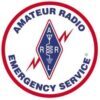EME-122
HOW REPEATERS ARE USED DURING EMERGENCIES
Modified for Houston from original Mecklenburg County ARES©
How are Repeaters used during Emergencies?
Emergencies can come in all different sizes. Some are very small and some can affect our entire region. The primary purpose of repeaters is to have a method of communication during any emergency whether it is large or small.
A small emergency could be a traffic accident where no other mode of communications is available. Larger emergencies could require the activation of an official emergency Net. Regardless of the incident size, Emergency Communications always have the highest priority on all of our repeaters.
The proper method for you to declare an emergency on a busy repeater is to wait until a pause in a conversation and say your call sign followed by “I have an Emergency.” Other methods of interrupting a busy repeater have been used in the past, such as using the pro-word “Break.” To avoid any confusion please use plain language because every operator knows the word “Emergency.”
When a Ham declares that they have an emergency it is up to us to put our best foot forward and help resolve the situation quickly. Most of the time, they only need Police, Fire or Medic to be notified that there is an emergency in progress. If that is the case then both hams should stay on the repeater because the 911 operator may have additional questions. In addition, anyone other than those directly dealing with the emergency should leave the repeater open until the emergency is fully resolved.
During larger emergencies an Official Emergency Net will be activated. During this net the only communications allowed will be those directly related to the emergency in progress. Casual contacts and general rag chew should be done on a different repeater or better yet on simplex. It is highly encourage that all Amateurs monitor any Emergency Net that is activated even though they are not directly involved.
ARES Emergency Nets are very similar to the daily repeater Nets in our area. There is a Net Control Operator that acts as a traffic cop to ensure that all the messages are routed to the proper place. The Net Control Operator also takes check-ins. The largest difference between a daily repeater Net and an Emergency Net is that all of the check-ins are ARES members deployed or traveling to deployment locations, operators of other essential emergency stations and liaisons to other agencies or emergency Nets. These Nets are for those stations dealing directly with the emergency situation. Other stations are asked to monitor the repeater but not check in unless they are asked.
Occasionally stations not involved in the emergency may be asked about conditions in their specific area of the county. These reports could be vital to the overall emergency response. Also important announcements regarding the status of the emergency, shelter locations or evacuation plans will be made periodically.
In the event that the telephone and internet systems fail then a call up of ARES members will occur on the 147.000 repeater which is also the primary repeater for Harris County District 14 ARES. When a general ARES call up occurs, all ARES members will be asked to check-in and their availability for emergency deployment will be determined at that time.
In closing, the use of repeaters for small and large emergencies is very similar. Stations dealing directly with the emergency have the highest priority and all others are asked to listen and not interrupt these activities.
Emergency Nets are very similar to our daily repeater Nets except the stations who check-in are directly involved in the emergency. Everyone else is asked to listen and let the responders fulfill their tasks. Important announcements regarding the emergency will occur periodically and under some circumstances monitoring stations may be asked about the conditions in their area.
That concludes tonight’s training. Are there any questions, comments or suggested additions to this material?
Thanks, this is (callsign) clear to net control.
Send corrections, modifications, updates or suggestions to k5prs@aol.com
